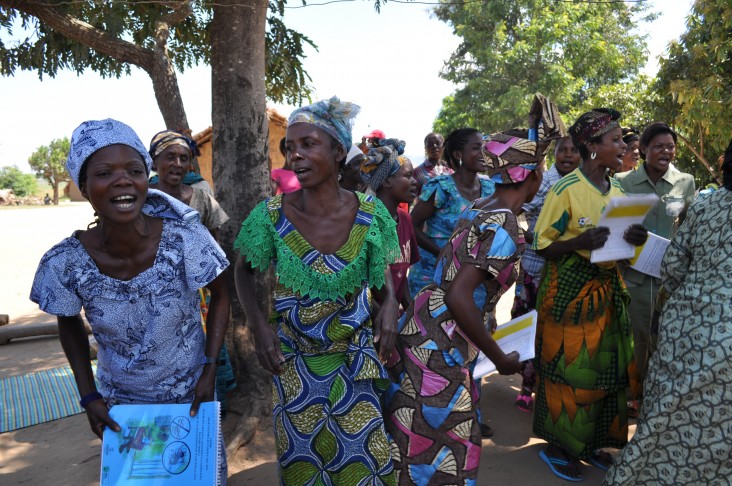
January 2016—Mwape Kabazo, a 35-year-old mother in Mango village, has seen firsthand how quickly a child’s health can turn. When her 4-year-old son, Kisile Lusinga, began to show signs of malnutrition and his health suffered, she held off on seeking care. However, when his health began to deteriorate, she wondered who to turn to.
“When I saw the state of health of my child, despair and desolation troubled my soul,” said Kabazo.
In the Democratic Republic of the Congo (DRC), nearly half of children under 5 suffer from chronic malnutrition, which leads to lifelong health problems and can be passed on to the next generation. Due to widespread conflict and a lack of government services and social safety nets, many children in the DRC suffer from stunted growth—a condition that starts before birth and can be irreversible after a certain age.
Fortunately for Kabazo and Kisile, USAID, through implementing partner Food for the Hungry, trained Angelani Kiamba as a “mother leader,” ready to counsel women on the importance of dietary diversification and monthly follow-up visits for health screenings.
As a mother leader, Kiamba teaches child care to mothers like Kabazo, including feeding from pregnancy to five years after birth. Her guidance helped Kabazo to break the destructive cycle of chronic malnutrition and poor health.
USAID works with 385 care groups in the Moba, Kalemie and Mubumbano territories of eastern DRC to fight child malnutrition. Over 4,000 mother leaders were trained in fiscal year 2015 to reach out to nearly 30,000 mothers.
After six months of visits to the children’s growth monitoring and promotion site, and changes to his diet to more nutritious foods, Kisile’s health greatly improved.
With Kiamba’s support, Kabazo now looks at her son with relief. “I am so grateful that my child is well now,” she says, “and I will continue to practice all these teachings and also help my other friends to learn these too to help their children have better lives.”
Kiamba’s training as a mother leader is part of USAID's Tuendelee Pamoja (Moving Forward Together) food assistance program, which works to improve agricultural production, health and nutrition, and access to water and sanitation in the Tanganyika and South Kivu provinces of the DRC. In fiscal year 2015, the program reached over 63,000 households, including over 40,000 farmers in eastern DRC.
LINKS







Comment
Make a general inquiry or suggest an improvement.